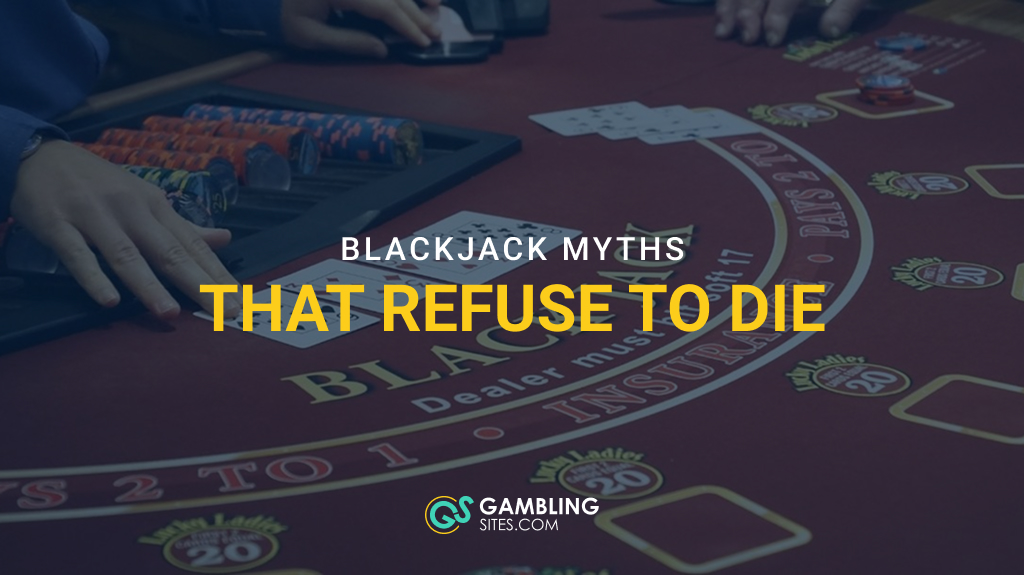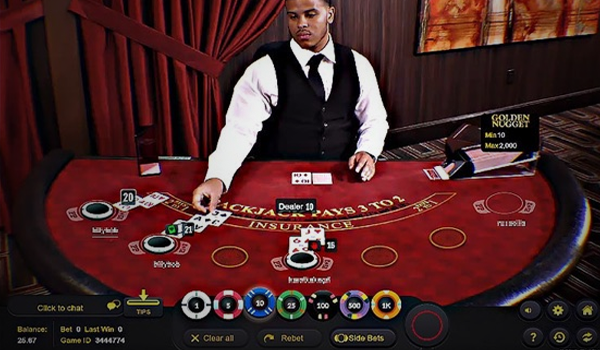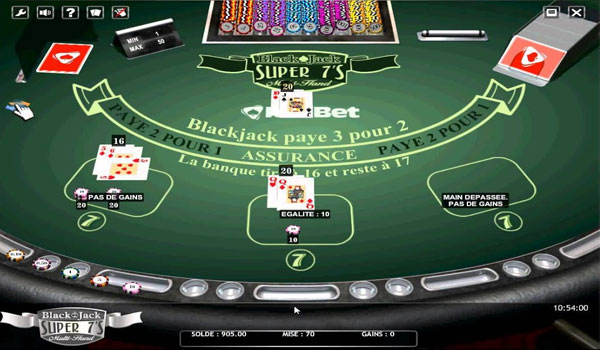Blackjack Myths That Refuse To Die

Blackjack myths stick around because they sound logical to beginners. When you sit through a bad run of cards, it’s easy to believe the dealer is “due.” Those ideas spread fast, and once you’ve heard them a few times, they start to feel like part of the game itself.
The truth is very different. Most of the biggest blackjack myths fall apart the moment you look at the numbers. This guide pulls them apart one by one, showing why they’ve survived for so long and what really happens at the table.
Myth 1 — “Bad players at the table ruin your hand”
This one sits at the top of the biggest blackjack myths exposed. You’ll hear people groaning because someone hits when “they weren’t supposed to,” and then the dealer pulls the perfect card.
But here’s the truth: other players’ choices don’t alter the long-term math on your hand. Blackjack is played against the dealer, not against the table. Even if another player’s decision in one short hand changes the order of the cards, that could just as easily help you as hurt you. Over thousands of hands, those swings balance out completely.
The only thing that affects your edge is whether you follow basic strategy or not. Thinking that a “bad” player costs you money is just frustration talking. If you want to see blackjack myths exposed in real time, track a few shoes, and you’ll notice how often that “mistake” actually saves the table.
Myth 2 — “The goal is to get as close to 21 as possible”
A common beginner misunderstanding is thinking that blackjack is all about racing to 21. While this sounds logical at first glance, the real aim is to beat the dealer’s hand without going over, not to chase the number itself.
If you’re dealt 12 and the dealer shows a 6, you don’t need to keep hitting. You can stand because the dealer is in a weak spot and likely to bust. Same with 13 against a 5. Just let the dealer’s risk work for you.
Meanwhile, if you’ve got 16 against a dealer’s 10, you often hit because standing gives you almost no chance of winning.
Myth 3 — “Card counting is illegal”
Hollywood loves to push this one, but let’s make this clear: while card counting may be unwelcome at most casinos, it is not against the law. Counting is simply a mental skill that keeps track of the ratio of high cards to low cards.
Still, casinos are private businesses. They can refuse service if they think you’re an advantaged player. Moreover, some players believe they can openly spread bets and hammer the house without being noticed. True professional card counters pride themselves on their discretion and discipline.
Myth 4 — “The dealer is due”
This blackjack myth is pure superstition and one of the most often whispered around tables. Players see a dealer winning multiple rounds in a row and convince themselves that a switch must be coming. However, cards have no memory.
Every shuffle resets the desk. The dealer isn’t “hot” or “cold” in any mystical sense. They’re simply running through random outcomes.

If you sit there waiting for their streak to break, you’ll bleed chips. Focus on the math you can control: standing, hitting, doubling, or splitting in the right spots.
Myth 5 — “Always take insurance”
Casinos love selling insurance, which is a side bet that only comes up when the dealer is showing an ace. It pays back 2 to 1 if the dealer’s hidden card is a ten.
Most players see taking insurance as a safe way to cover themselves. The problem is, the numbers don’t back it up. In a six- or eight-deck shoe, for every 16 ten-value cards, there are 36 others, meaning the dealer has blackjack less than a third of the time.
Even card counters only take insurance when the deck is unusually rich in tens, which flips the odds. For anyone else, it’s a bankroll drain disguised as protection.
Myth 6 — “More decks = better odds”
It’s easy to see how players get drawn into this idea. You see eight decks in the shoe and assume more cards must somehow give you more ways to win. What’s really happening is the opposite.
In a single deck, the odds of getting dealt a natural blackjack sit at 4.8%. That figure falls to 4.75% with two decks and down to 4.75% in an eight-deck game. Moreover, fewer decks also slightly increase your chances of pulling the card you need for doubling down. That’s why serious players hunt for single-deck or double-deck tables.
Myth 7 — “Never split 10s”
Getting two tens in blackjack gives you a strong hand totaling 20, so most players never touch it. Standing is the smart move in most cases, especially against the dealer’s high cards, but there are cases where splitting tens is the right play.
For example, in single-deck games against a dealer’s 5 or 6, splitting gives you a chance to turn one strong hand into two. Advanced players, particularly card counters, also split tens when the deck is stacked with tens and aces.
Myth 8 — “Blackjack is pure luck”
While blackjack does involve plenty of chance, calling it pure luck is a myth. The numbers tell a very different story.
Blackjack is one of the few casino games where player decisions directly change the expected return. Basic strategy cuts the house edge down to 0.5% in most games. Compare that to roulette, where your edge never budges, no matter how clever you think you are.
Moreover, disciplined players can use card counting and shuffle tracking for an extra advantage. The better you understand the math, the tighter your variance gets.
Myth 9 — “You should always hit 16”
Sixteen is the most dreaded hand in blackjack. Standing feels like the dealer can beat you easily, while hitting can easily lead to busting. Most players choose to hit because they remember often losing when they froze on 16.
The truth is, there’s no one-size-fits-all answer. It all hinges on the dealer’s upcard. If it’s between a 7 and an ace, it’s better to hit than leave it frozen. Even if you bust a good number of times, your win percentage is still higher than if you stand. Meanwhile, against a dealer’s 2 through 6, though, it makes more sense to stand and let them trip themselves up.
Myth 10 — “Online blackjack is rigged”
Many people ask, “Is online blackjack rigged?” because they don’t trust what they can’t see. The truth is, online blackjack can be just as fair as sitting in Vegas, provided you’re at a regulated site.
Licensed online casinos use random number generators (RNGs) that undergo third-party testing to ensure fairness. Live dealer blackjack is also streamed in real time from real tables, with no software deciding your cards.

Playing at shady, unlicensed sites is certainly a risk, but it’s not the game itself that’s rigged. It’s the operator!
More Blackjack Myths Exposed
Here are six more blackjack myths players fall for that don’t hold up:
Final Word: Don’t Let Myths Influence How You Play
Blackjack myths have gone around tables for decades, but none of them stand up once you look at the numbers. The game only rewards clear thinking, such as knowing when to hit, stand, split, or double based on the dealer’s card. Don’t let table talk push you into chasing 21, insuring every hand, or thinking the dealer is “due.”
Sticking to a basic strategy gives you the best shot at stretching your bankroll and making a profit. The more you cut out superstition and ignore the noise, the more blackjack becomes what it really is: one of the fairest games in the casino.
Ready to play? Check out the best online blackjack sites available in the US.
 80%
80% 75%
75%
